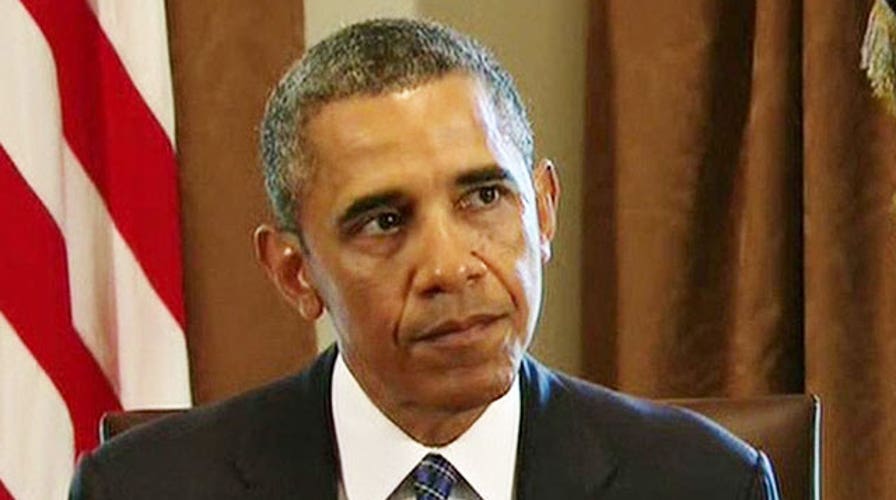While leading Israeli officials have publicly struck a tone of muted support for President Obama's decision to seek congressional authorization for strikes on Syria's chemical weapons delivery systems, in private, senior Israeli officials and foreign policy analysts are expressing grave disappointment with the conduct of their ally in Washington.
Well-placed Israeli sources told Fox News they "get it" as to why the president felt the need to cloak his planned military strikes in congressional legitimacy. But they regard the way he went about his decision-making in this instance as erratic, unnerving to them, and a bad omen for what the Israelis regard as the sine qua non of their foreign policy: the looming showdown with Iran over its nuclear program.
"The feeling is that something was wrong here, that this was not the way this should have gone down, that this is not the way a superpower should act," said one former Israeli diplomat who has spent considerable time in the United States and enjoys close ties to the Netanyahu government. "We look at Syria, and we think Iran. ... What conclusions should be drawn about how America will act in other circumstances? Here was a clear red line. It was breached a few times. This looks like a clever move; but America's willingness to 'walk the walk' now is very questionable."
Another senior official, presently in the Israeli government, told Fox News the president was right, in terms of domestic U.S. politics, to "look for cover," and thereby force American lawmakers who would have criticized him for undertaking unauthorized action to "own it, too." But this official said the Israelis, from their vantage point, see the Obama administration as detached from the Mideast and the president, in particular, as ill-equipped to shape events there.
"I can only compliment Obama for dragging everyone to his boat," the Israeli official said. "'You want war? Own it, too.' Still, however, he's a disastrous weak leader. ... The Middle East is far less important for this administration and to real American national interests today than in the past. ... The U.S.-Saudi alliance insures a continued supply of oil, and other than that, the U.S. doesn't really care."
When President Obama visited Israel in March, the first foreign trip of his second term, Israeli Prime Minister Benjamin Netanyahu thanked him for showing unprecedented support of Israel's position on Iran. "I appreciate the fact that the president has reaffirmed -- more than any other president -- Israel's right and duty to defend itself, by itself, against any threat," Netanyahu said at the time.
Now, sources said, Netanyahu has instructed his cabinet ministers to refrain from public statements that will unduly affect the pending congressional vote in the United States. Only the prime minister himself and Defense Minister Moshe Ya'alon are said to be permitted to comment on the Syrian crisis. However, Israeli President Shimon Peres -- who enjoys unique stature as one of the last of the country's founders still active in public life, and whose office is largely ceremonial in nature -- spoke in praise of the president during a session with foreign ambassadors in Jerusalem on Tuesday.
"I express my admiration for the attempt of President Obama to check every possible angle how to bring an end to this horrible situation in Syria," Peres said, adding that the situation is viewed that way "in the eyes of the Arabs, not only in our eyes. And I'm sure that none of us can overlook it."
In urging Congress to approve his planned strikes, the president on Tuesday cited the security of the Jewish state, among that of other regional allies, as a factor for lawmakers to consider. "There are certain weapons," Obama said, "that when used can not only end up resulting in grotesque deaths, but also can end up being transmitted to non-state actors -- can pose a risk to allies and friends of ours, like Israel, like Jordan, like Turkey."





